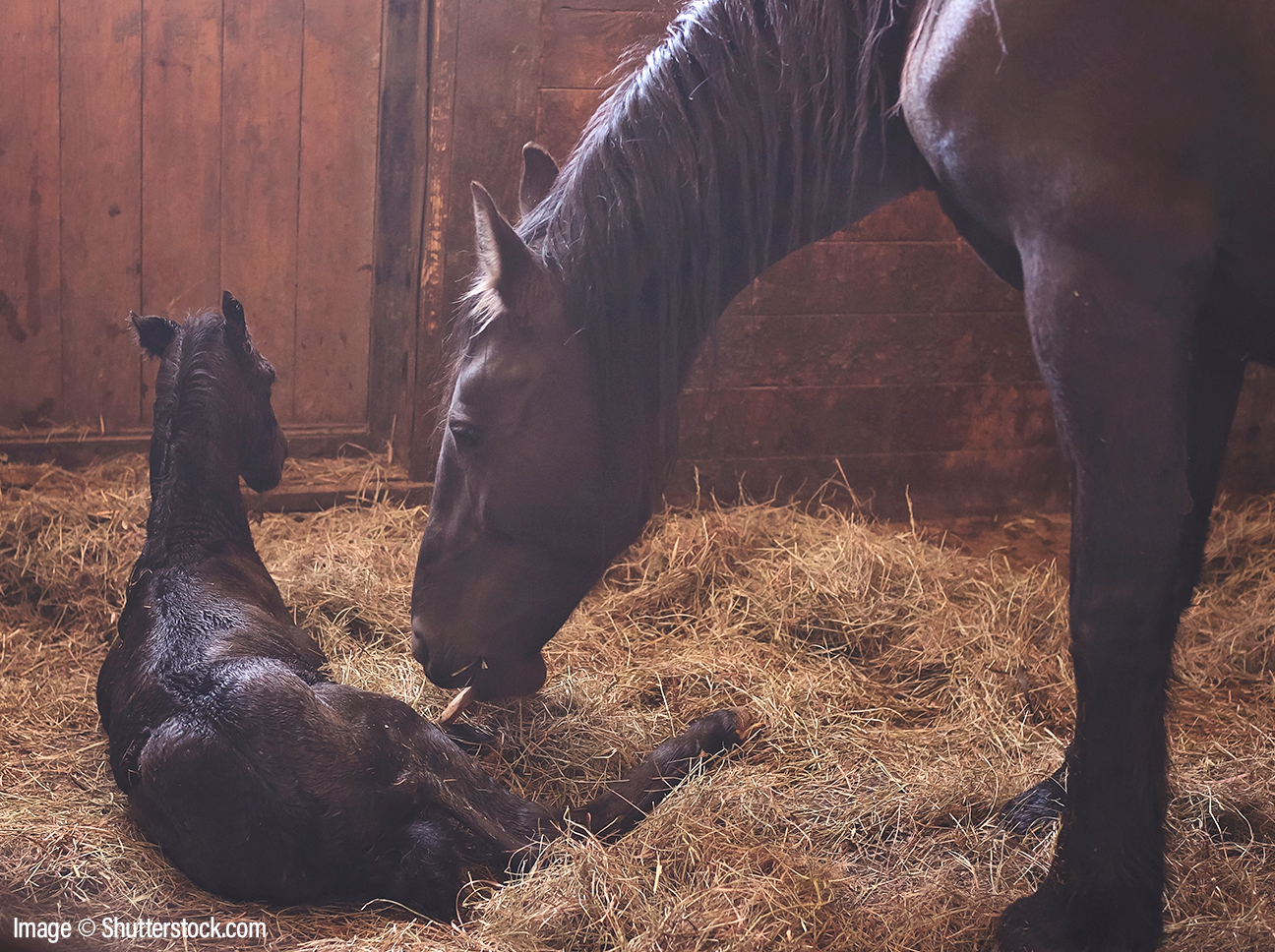Equid Herpesvirus (EHV) is very common – more than 75% of horses have been exposed at some point in their lives. Young horses are especially susceptible. Horses can become carriers, and these may spread infection even if they are not unwell, especially at times of stress.
It is usually spread via the respiratory tract, though the virus can survive in the environment for weeks. Types 1 and 4 exist. Abortion storms may occur with type 1 (as well as respiratory disease and paralysis). Only sporadic abortion has been recorded as a result of EHV4. Management needs to be aimed at minimising the chance of spreading EHV to pregnant mares – it is safer to assume other horses are carrying EHV.
- Especially in late pregnancy remember that abortions can occur at any time from a fortnight to several months after exposure to the virus. Mares usually abort late in pregnancy – around eight months onwards, though they can abort as early as 4 months.
- Of particular risk of spreading the virus are horses that go out competing/mixing with other horses, yearlings and weaned foals. Obviously mares that have aborted should be isolated and not mixed with pregnant mares (e.g. in the case of a foster mare). The aborted foal and placenta is a massive source of infection.
- Arrange routines so that pregnant mares are checked/handled before any other horses are dealt with.
- Consider separate clothing/overalls for different groups of horses – especially if it is unavoidable that mares are handled after other horses. Also disposable latex gloves are useful in this situation. It is worth using gloves around youngstock as a matter of course, and always with young foals. Wash hands between groups of horses (e.g. Hibiscrub), and dip boots in disinfectant.
- Virucidal disinfectants are also useful in any buildings mares may use. Antec Farm Fluid S and Virkon are suitable examples – follow manufacturers instructions. Keep boxes for pregnant mares only, or pressure wash with disinfectant between horses if this is not possible.
- Keep equipment such as headcollars/stable tools specifically for the mares.
- If pregnant mares must be transported, they must not be transported with non-pregnant animals. Disinfect the lorry beforehand since the virus can survive in the environment.
- The disease can be transmitted to healthy foals; conversely a sick foal born to an infected dam may also spread the disease. Foals are more likely to be born infected if the mare becomes stressed (e.g. long journeys, illness, new horses) late in her pregnancy.
